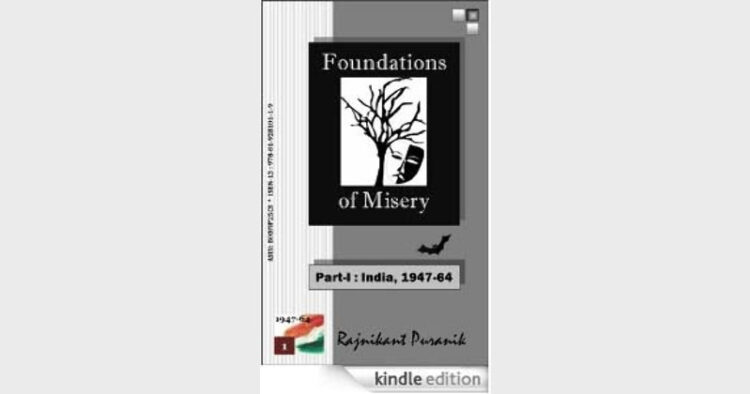Rajnikant Puranik
An Australian journalist, Neville Maxwell, created turbulence by targeting Nehru’s China Policy and its impact on the India-China war in 1962. But most of the shocking revelations reported by the Hendersm Brooks – Bhagat Report are already in the Book Fondations of Misery in the chapter “Himalayan Blunder” published months back by Rajnikant Puranaik. We are giving stunning facts about the war given by the author in his book as a series:
Soon after independence, when the Indian government wrote to the Tibetan government informing them that as the successor government to the British, the British rights and obligations under their treaties with Tibet would rest with the independent Indian government, Tibetan government responded by asking for return of the territories on its boundary acquired by the British, including Ladakh, Bhutan, Sikkim, Darjeeling and so on!
Mid-Segment
The borders of Himachal Pradesh and Uttarakhand with Tibet (referred as Mid-segment) are though not as controversial as Aksai Chin and the McMahon Line, many incidences of infiltration have been reported from there.
The Himachal-Tibet border is about 260 kilometres long, while Uttarakhand-Tibet border is about 350 kilometres.
Sikkim-Tibet Border
The Sikkim segment is sandwiched between Nepal to its west and Bhutan to its east.
The salient points of the Convention between Great Britain and China relating to Sikkim and Tibet signed at Calcutta on 17 March 1890 and ratified at London on 27 August 1890, were: “The boundary of Sikkim and Tibet shall be the crest of the mountain ¬range separating the waters flowing into the Sikkim Teesta and its effluents… It is admitted that the British Government, whose Protectorate over the Sikkim State is hereby recognized, has direct and exclusive control over the internal administration and foreign relations of that State…”
The “Regulations Regarding Trade, Communications and Pasturage Appended to…[the above] signed at Darjeeling, India, 5 December 1893” stipulated: “A trade mart shall be established at Yatung on the Tibetan side of the frontier, and shall be open to all British subjects for purposes of trade from the first day of May, 1894. The Government of India shall be free to send officers to reside at Yatung to watch the conditions of British trade at that mart…”
Interestingly, the British did not involve the Tibetans in the above agreements as they would have opposed them—they therefore entered into an arrangement with China. Tibetan authorities refused to recognise the legitimacy of these treaties; and, in protest, tore out the border-markers between Sikkim and Tibet put up under the agreement.
In August 1904, the British expeditionary force under Colonel Younghusband invaded Tibet and entered Lhasa to force a trading agreement and to prevent Tibetans from establishing a relationship with the Russians who were trying to do so to save them from the British-China designs. And then the 1904 Anglo-Tibetan Treaty was forced upon the Tibetans by the British which required Tibet to respect Anglo-Chinese Convention of 1890, recognise Sikkim-Tibet border, allow British and Indian traders to travel freely, not to impose customs duties on trade with India, to pay 2.5 million rupees as indemnity to the British and not to enter in a relations with any foreign power without British approval.
Incidentally, China has since recognised Sikkim, which was annexed by India in 1975, as a state of India. There is no dispute on Sikkim and nor its border with Tibet-China.
What should have been done post-Independence?
Looking at the dispute on the Ladakh-Tibet border and the questions on the McMahon line in the northeast, the following steps should have been taken in the fifties:
Step-1: Both India and China should have taken stock of the fact of unsettled borders, and let the public in both the countries know of the same.
Step-2: A team comprising experts from both the countries should have done ground survey and should have tried to define the boundaries.
Step-3: Those areas that the expert-team failed to resolve could be left for further discussions at a higher level, where they could have been resolved in a spirit of give and take.
But, were these sensible steps taken? Unfortunately, no! Contrary to expectations, one is shocked to learn that while China agreed for these sensible steps, India did not!
Nehru had other ideas on these issues!! What? Why? We would take up, as we proceed further.
(The writer is author of Foundations of Misery, Part-1, 1947-64)














Comments